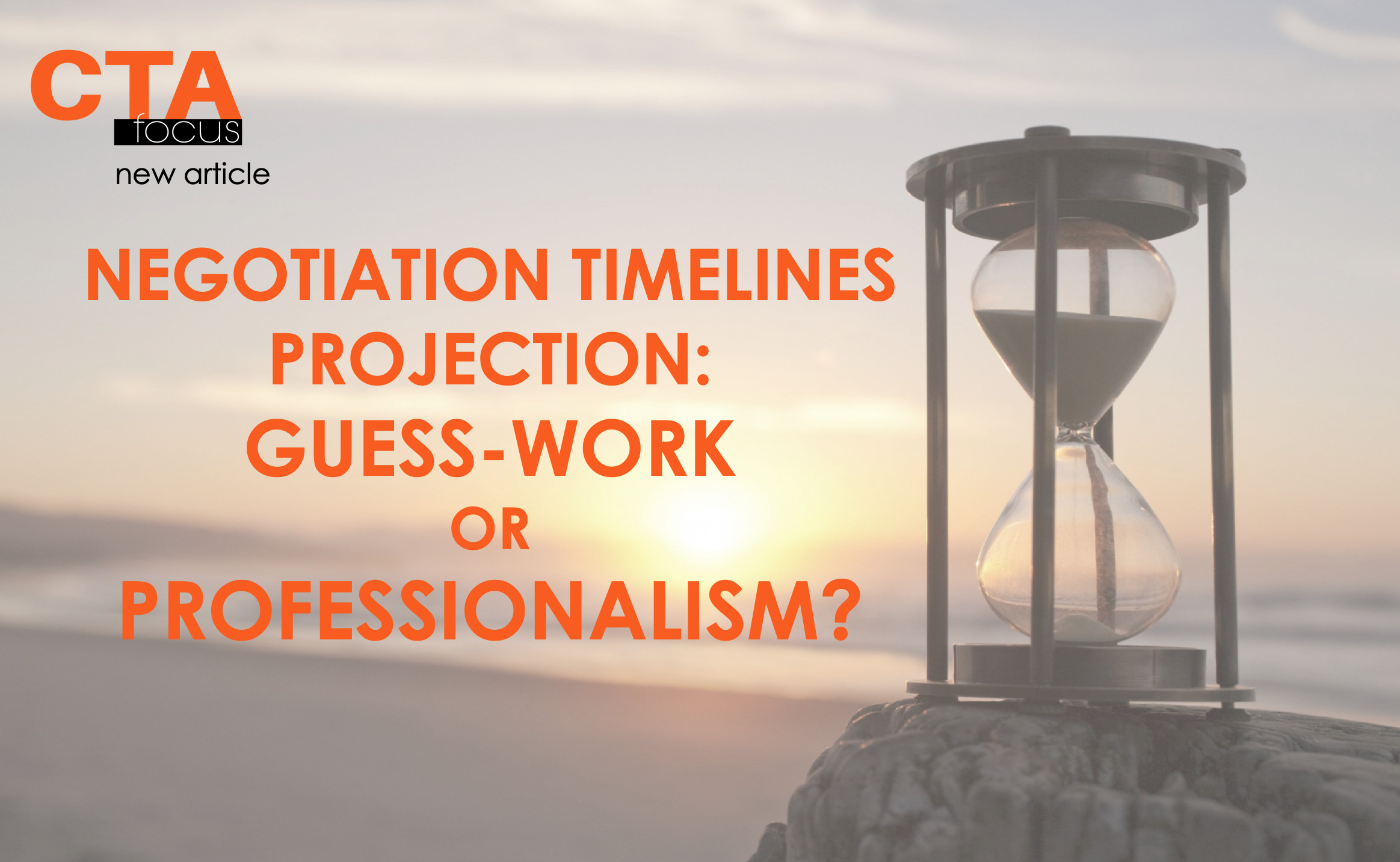
NEGOTIATION TIMELINES PROJECTION: GUESS-WORK OR PROFESSIONALISM?
One of the challenges a contract negotiator faces day-by-day is the projection of negotiation timelines. The need to make proper projection is not just a whim of a Client, but a very important point that is taken into account while planning the overall clinical trial, since no clinical trial site can start the trial without fully executed clinical trial agreements.
Projection is always a challenge. The contract negotiator shall consider quite a lot of factors while projecting the timelines. In this article we would like to cover some of these factors:
– Average timeline based on past experience
Historical experience is something we shall definitely rely on while making projections for the future. But if we know that negotiation in some country historically takes from 30 till 180 days, would only that knowledge help us to provide proper projection for a particular study? The answer is obviously ‘No.’
– Sponsor’s expectations
CTA negotiation is a part of a very competitive market. If the negotiating entity has proper resources, clear processes that allow to ensure professional and fast negotiation contributing to the fast start-up, that entity will be the one of choice. But you will never be of choice if you promise miracles. Thus, projecting negotiation timelines you always must be a realist, yet taking Sponsor’s expectations as a roadmap.
– Type of the site
Private sites are usually more flexible in negotiations and their negotiation process is usually quicker than that of huge public or academic site. Having site list on the table helps to the negotiator a lot to make proper projections.
– Complexity of the study
Surely, all studies are equally important. And none of them is ‘simple’. Though pragmatically for contract negotiator term ‘complexity’ makes sense. It is obvious that negotiating CTA for observational study and, say, phase III oncology study will give different negotiation timeline estimations.
– Season
Vacation period is specific to any country, and it definitely influences the feedback time. It can be not even country-specific (national holidays, season, etc.), but also connected to the type of a site. For example, some academic sites slow down their administrative activities for the period of seasonal recess.
What all the above means? Negotiation timelines projection is not possible as such? Hardly that. Projection is absolutely required and possible. Yet, depending on these factors it can take different forms – as best- and worst-case scenario. While projecting, a negotiator is not expected to be a wizard, but realistic, transparent and professional assessment will add a lot of points to the negotiator’s professional karma.
Please share your thoughts, experience or questions in the comments – we are always open for discussion.
